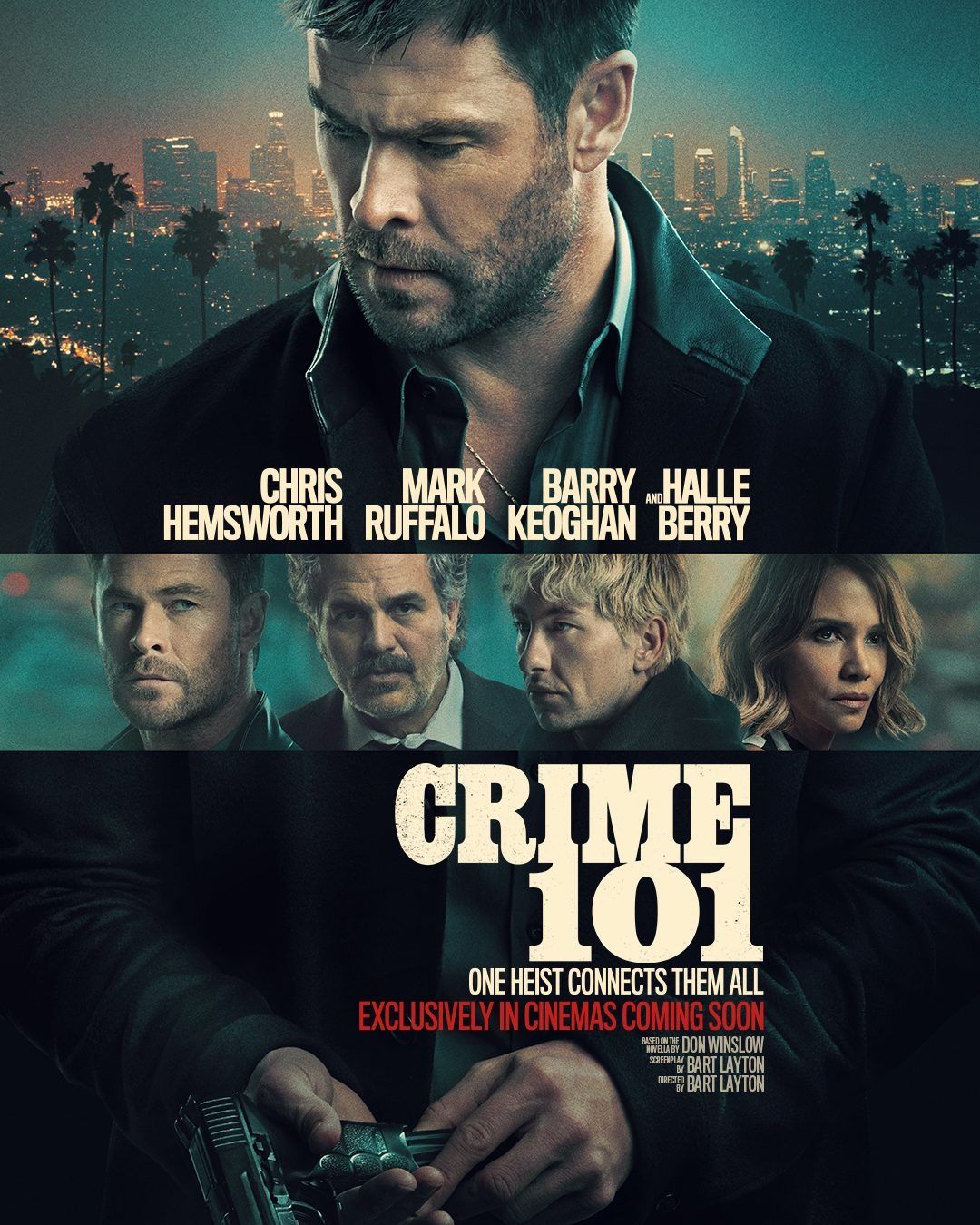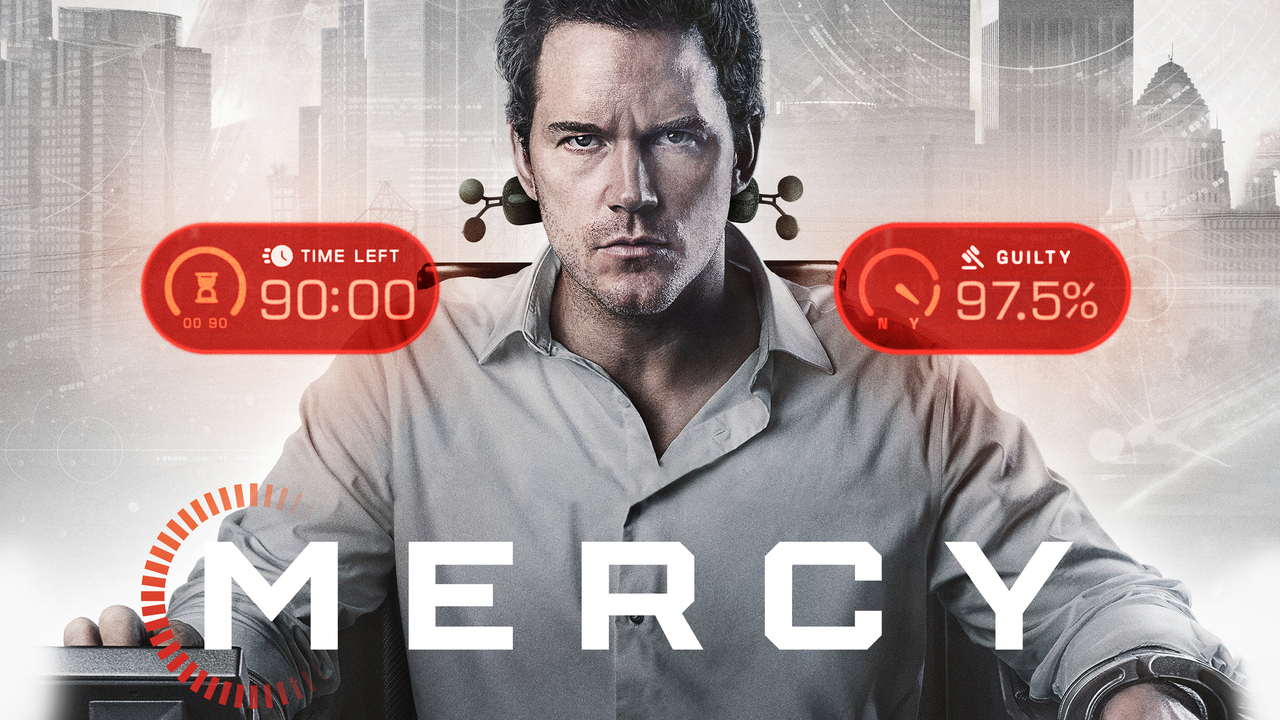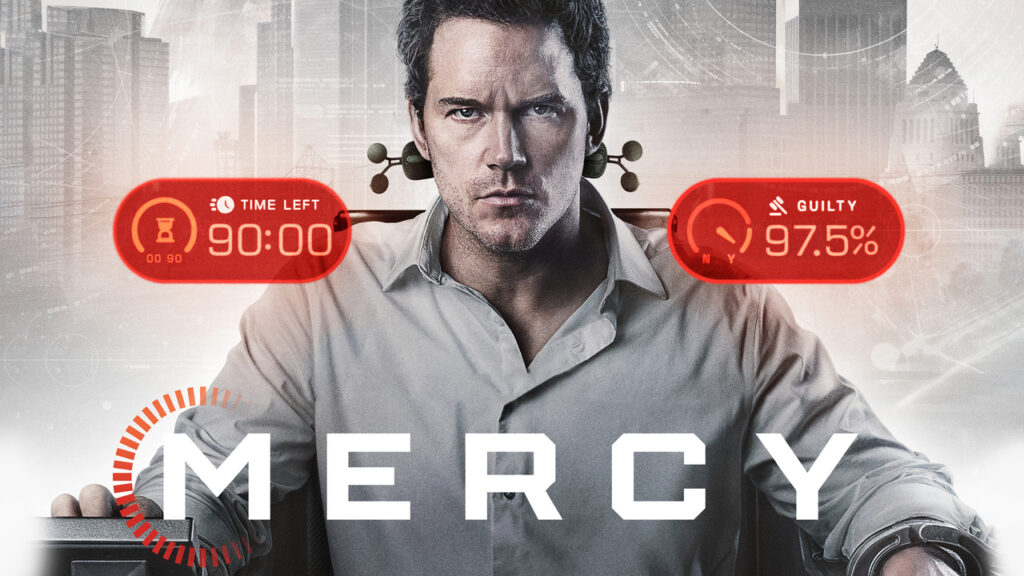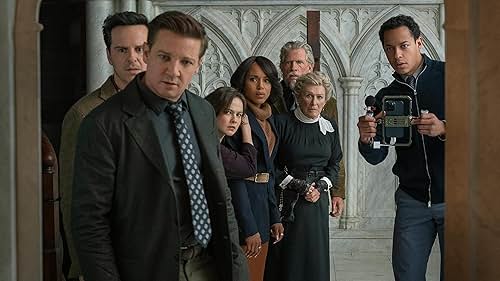Crime 101
Posted on February 12, 2026 at 5:37 pm
B-| Lowest Recommended Age: | Mature High Schooler |
| MPAA Rating: | Rated R for anguage throughout, some violence, and sexual material/nudity |
| Profanity: | Strong language |
| Alcohol/ Drugs: | Alcohol |
| Violence/ Scariness: | Violent crime, characters shot and beaten, injuries and death |
| Diversity Issues: | Diverse characters |
| Date Released to Theaters: | February 13, 2026 |
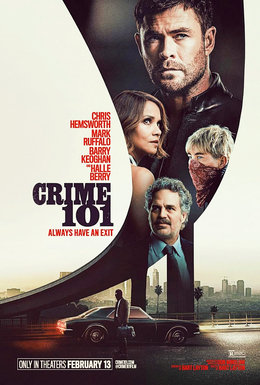
Three people under increasing pressure find their stories intersecting in a tense, old-school crime drama that hopes top acting talent will keep you from noticing, or at least caring. And it pretty much succeeds.
Chris Hemsworth, who also produced, stars as Mike, a smooth, methodical thief who specializes in detailed plans where no one is ever hurt. He also specializes in a particular geographic location. The 101 in the title is not a metaphor for an introductory class but a reference to the Los Angeles freeway. Mike lives a very controlled, sterile, isolated life. He tells the man who acts as a fence for the stolen goods (Nick Nolte, rasping his way through a small role as “Money”) that he is going to quit.
Mark Ruffalo is Lou, the police detective trying to persuade his boss that there is one person behind a series of jewel robberies along the 101, as the boss complains about his low closure rate and pushes Lou to make ethical compromises.
And Halle Berry is Sharon, who sells insurance to wealthy collectors and is under-appreciated by her boorish boss. She has repeatedly been promised she would be made partner, but he keeps telling her she has to wait.
Methodical can also mean predictable, and Lou thinks he knows where the next robbery will be. But Money adds chaos to the mix by telling Orman (Barry Keoghan), a trigger-happy motorcyclist to rob the place Mike had identified.
All of these stories come together in a sleek, moody story that shows off the landscape of Los Angeles very effectively. Mike meets Maya (Monica Barbaro (Joan Baez in “A Complete Unknown”) and is very drawn to her warmth and empathy, two qualities we suspect he avoided because he was afraid of being vulnerable. Sharon is pushed aside by her boss, who gives a younger associate the chance to close the deal she was working on. (Tate Donovan is very good here as the client Sharon is trying to land, an arrogant billionaire engaged to a much younger woman.) Keoghan has a plausible American accent and an even more plausible combination of fear, anger, brutality, and the need to prove himself.
The plot keeps trying to bring all of these parts together, but they never quite mesh. Each segment, even the rumpled Ruffalo with a marital separation scene, feels as sterile and isolated as Mike’s spare, generic apartment. That separation scene features Jennifer Jason Leigh as Leo’s wife. Like Cory Hawkins, who play’s Leo’s partner, Leigh is immensely talented and unforgivably underused.
And then there is the last half hour, which plot holes that overpower the charisma of the stars and the glossiness of the production. The bigger problem is that what is intended to be rough justice comes across as fatuous and cynical.
Parents should know that this movie includes violence, with characters injured and killed, sexual references and situations including a sex worker, strong language, and alcohol.
Family discussion: Do you agree with Lou’s choice at the end? With Sharon’s decision? What will Mike do next?
If you like this, try: “Tequila Sunrise” and “Heat”

